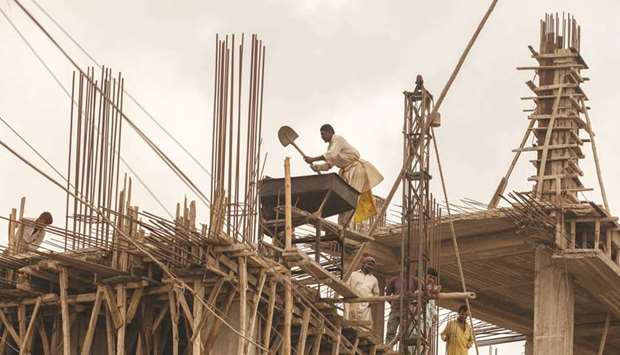The Planning Commission (PC) of Pakistan has shared the draft of highly ambitious 12th Five Year Plan.
However, the leading economists have termed it ‘redundant framework’ in case the PTI-led government approaches the IMF for a fresh bailout package.
The commission in its envisaged macroeconomic framework has set an average GDP growth target of 5.4%, jacking up allocation of development outlay to Rs11.7tn including Rs6.2tn at federal level in which Rs1tn will be financed through the public private partnership (PPP) mode and over Rs5.4tn development outlay in the federating units over the next five year rule under the PTI led regime.
“The average budget deficit has been estimated at 4.9% of GDP over the five-year period,” said the official sources.
They quoted economist Dr Ashfaque Hassan Khan who is member of high profile EAC as saying that this macroeconomic framework could become good policy framework without IMF programme but if the government decided to seek Fund programme, then it would become a redundant document. “The discount rate will go up 13%-14% in case of IMF programme so how one should expect increase in investment.
The budget deficit will have to come down to 2.9% of GDP on terminal year of the IMF programme so how the government will spare resources of over Rs1tn for public sector development programme each year,” sources quoted D Ashfaque as saying during the meeting.
Dr Asad Zaman said in the meeting that Pakistan would have to explore the engine of growth from private sector and it could not be done without revamping legal and regulatory regime.
According to official statement issued by Planning Commission after the meeting, Federal Minister for Planning Development and Reform Makhdum Khusro Bakhtyar has said that 12th Five Year Plan has extensively covered growth, macro stability, expand agriculture production, galvanise agro-business potential, industry and export competitiveness, human resource development, integrated energy planning, infrastructure development, social safety nets, poverty reduction, achieving SDGs and administrative reforms along-with focus on less developed areas, climate change and environment.
The minister was chairing a briefing to Economic Advisory Council on draft 12th Five Year Plan in Islamabad.
Adviser to PM on Commerce and Industry Abdul Razzak Dawood, Economic Advisory Council Secretary Planning Zafar Hasan, Secretary BISP Ali Raza Bhutta, Chief Economist Ejaz Wasti, Members Planning Commission and senior officials of all sections of the ministry were present during the briefing.
Makhdum Khusro said that it has been decided to conduct quarterly reviews of the plan at the Ministry and bi-annual reviews will be made by the Prime Minister for its effective implementation in achieving all the set targets.
He stated that priority will be given to projects related to infrastructure development, transport, housing, communication, energy and water sector.
The minister said that development strategy also entails boosting the country’s exports as well as envisages a mechanism to monitor the progress of ongoing projects.
He added that the Plan aims at improving productivity of all sectors of the economy.
He said that the government is committed to ensuring timely completion of all ongoing projects without any cost escalation.
Makhdum Khusro appreciated the macroeconomic framework prepared by the Planning Commission. The Plan envisages an average growth of GDP at 5.4%.
The expected outlay of the Plan will be Rs11.750tn including Rs1tn involving innovative financing through public-private partnership.
Secretary Planning Zafar Hasan said that Plan document has been prepared through extensive consultative process involving dialogue with stakeholders, formal consultation with the members of different working groups formulated for different sectors.
So far more than thirty sessions have been held with stakeholders for preparing the draft of the next Plan. He apprised that after taking the inputs and suggestions from the members of the Economic Advisory Council, the Plan will be placed before National Economic Council for consideration and approval.

Workers at a construction site in Karachi. The Planning Commission of Pakistan in its envisaged macroeconomic framework has set an average GDP growth target of 5.4%, jacking up allocation of development outlay to Rs11.7tn.
